Who are we? Where did we come from? Where do we go after death? Does heaven really exist? Is there any possibility of having life on other planets? What is the meaning of life? How and why are we conscious?
These and many other similar questions about our existence make us wonder at some point in our lives but we seldom find answers for them, we just raise these questions, think about them for a while and then move on. But the people having philosophical thoughts not only think but also try to find answer for life’s big questions. These legends are labeled as being existentially intelligent people by American developmental psychologist and the author of the book ‘frames of minds, the theory of multiple intelligences’, Howard Gardner. According to him, this is the intelligence of big questions; individuals having this type of intelligence not only perceive big picture of others and world around them but also understand themselves very well.
Understanding the big picture involves many skills, most important of which are cognitive flexibility and meta-cognition. Cognitive flexibility is the mental ability to shift between thinking about two distinct concepts, and to ponder multiple concepts at once. Meta-cognition is one of higher order thinking skills, defined as knowing about knowing and being aware of one ‘s awareness.
While writing about big picture, Gardner illustrated it with the help of a fictional character named Jane, an entrepreneur who is responsible for overall working of the organization. Jane has to manage finances, allocate resources towards different segments of the company, build strong relationships with the customer, meet the changing requirements of the market, adapt towards the current technological trends, and finally motivate and counsel her staff from top management to lower level management. In simple words Jane sees big picture, she has to visualize the future, future demands of the customer and market, and of the organization as a whole and lead the organization towards that way. This tendency to visualize the big picture is actually the existential intelligence.
Firstly, Gardner did not include this individual capacity as intelligence because he was unsure about some kind of brain activity behind this capacity or neurological basis for it, but a dozen year after the introduction of the theory of multiple intelligences (1983), he speculated about the possibility of a 9th intelligence or existential intelligence but still it has not passed the test for being a candidate of intelligence. “some writers want to know whether “Ex I” has passed the test and is now officially an intelligence. (Answer: “Sorry, no, It’s still in limbo)”, says Gardner.
According to Gardner, this is not necessarily religious or spiritual intelligence, rather it’s the intelligence of raising and pondering big question “the candidate intelligence features the raising and pondering of big questions; these can certainly include spiritual or religious issues though they need not—pondering the universe or a grain of sand qualify as well.” In simple words, its an intelligence of pondering big questions, big questions that are far beyond our perception; concepts that cannot be perceived through our five basic senses. It’s the capability of using intuition, thoughts and meta-cognition to inquire about deep realities of the universe and our interconnectedness to this universe.
People having existential intelligence choose to be theologians, philosophers, life coaches, politicians,  counselors and even scientists. Existentialists think philosophically, this is why they are sometimes named as old souls.
counselors and even scientists. Existentialists think philosophically, this is why they are sometimes named as old souls.
Identifying individuals having existential intelligence
Existentially intelligent people have some traits that differentiate them from others including:
Insightful: Existentially intelligent people have an accurate and deep understanding about the society, world around them, whole universe and themselves. Whenever they come to know about a new development or something they did not knew before, they wish to be completely knowledgeable about it before moving further.
Highly intuitive: Most of the existentially intelligent people rely on their instincts, that is also called gut feeling. They use to judge the situation using their instincts as their instinctive power is very strong
Lateral thinker: Individuals having high level of existential intelligence think outside the box, they link concepts or solve problems using indirect logics. In other words, they make connections that are not obvious directly.
Curious or Socratic: Existential intelligence enables people raise and ponder a lot of questions about their existence or about the bigger picture, so these are curious souls or Socratic souls.
Sagacious: Existential intelligence allows a person to think big or think differently, they understand the big picture and possess good judgement about the world.
Moreover, existential intelligence enables individuals to understand different viewpoints and explain the essential differences among different concepts. Furthermore, they can easily extract the crux of a discussion and list its important details immediately and thus are able to remove irrelevant details of both oral or written discussion
Now you know the traits of people having existential intelligence, So the question is: are you existentially intelligent? Most probably your answer will not be a ‘yes’ or a ‘no’, because everyone possesses different levels of existential intelligence and the positive thing is you can further polish it i.e. you can develop it, in fact, everyone can develop this capacity.
Ways to develop existential intelligence:
Brainstorm: As brain storming is a form of free thinking that develops new ideas, concepts and solutions,  whenever you brain storm you are collecting a variety of ideas. That simply means you are stimulating your creative thinking and creative thinking diverts you towards understanding big picture; and understanding big picture means being existentially intelligent. So, brain storm more and more to develop your existential intelligence
whenever you brain storm you are collecting a variety of ideas. That simply means you are stimulating your creative thinking and creative thinking diverts you towards understanding big picture; and understanding big picture means being existentially intelligent. So, brain storm more and more to develop your existential intelligence
Daydream: Daydream is a universal human experience, our attention diverts from the outside world and we  go towards imagination or simply towards mental thoughts. Again this is also an activity that enhances our creativity but too much daydreaming is not a good sign. If you are already a day dreamer, then surely you will be creative and existentially intelligent up to some extent but if you are not trapped in a daydream then you must start this activity to hone your existential intelligence
go towards imagination or simply towards mental thoughts. Again this is also an activity that enhances our creativity but too much daydreaming is not a good sign. If you are already a day dreamer, then surely you will be creative and existentially intelligent up to some extent but if you are not trapped in a daydream then you must start this activity to hone your existential intelligence
Meditate: Have you ever meditated? Meditation is a technique to train your mind; it helps in reducing stress,  making your body calm, shifting you towards mental clarity and promoting happiness. When you meditate you focus on an object, then your attention gradually diverts but you continue it for a fixed and pre-planned time and this whole procedure helps you to redirect your thoughts. So, how does meditation help in honing your existential intelligence? When you involve in meditation, you become spiritually powerful and strong; and having greater spiritual strength will enable you to comprehend the big picture more precisely and consciously
making your body calm, shifting you towards mental clarity and promoting happiness. When you meditate you focus on an object, then your attention gradually diverts but you continue it for a fixed and pre-planned time and this whole procedure helps you to redirect your thoughts. So, how does meditation help in honing your existential intelligence? When you involve in meditation, you become spiritually powerful and strong; and having greater spiritual strength will enable you to comprehend the big picture more precisely and consciously
Become a critical thinker: Critical thinking is the ability to think clearly and rationally and understanding the logical connection between different ideas. Its simply an analysis of the given facts to reach a meaningful judgement. To be existentially intelligent, you need to be a critical thinker because without the ability to analyze the information or facts and figures, how can you make a judgement and without making a judgement, how can you see the big picture which is crux of the existential intelligence.
Study ancient and modern philosophers: To dig deep in any field you need to study the points of view as well as life events of its pioneers and legends, so is the case with existential intelligence. To be existentially intelligent you need to study the experiences and points of view of both ancient and modern philosophers including Socrates, Jesus Christ, Buddha, Augustine etc.
Observe more and more: You need to be an active observer in order to enhance your existential intelligence skills. For this purpose, you may visit a scientific laboratory, an astronomical observatory or an industrial plant. But you may observe things in day to day life, this observation will train your mind to understand the big picture.
Engage in discussion related to big questions: Never miss an opportunity of being a participant of the discussion related to big questions, whether in the class room, in an office meeting, an informal talk at an office desk or at home with other family members. This kind of discussion will stimulate more and more thinking related to big picture and you will surely be finding answers for them and raising alike questions
Existential intelligence is not just seeing the big picture, rather understanding and developing existential intelligence is the requirement of today’s era. In this era of automation and growth, there are tasks that require higher order thinking, this is why we need to hone our youth’s existential intelligence. Furthermore, existential intelligence enables individuals move towards mental calmness and happiness or in short enjoy overall mental well being
Think differently and take your existential intelligence to the next level, this development will allow you to learn plenty of things – not only about others or the world around you or the universe as a whole but also about yourself. Furthermore, existential skills will be beneficial for you throughout your life in your career as well as personal life.
Facebook : Think Different Nation
Instagram : Think Different Nation
Twitter : @TDN_Podcast
